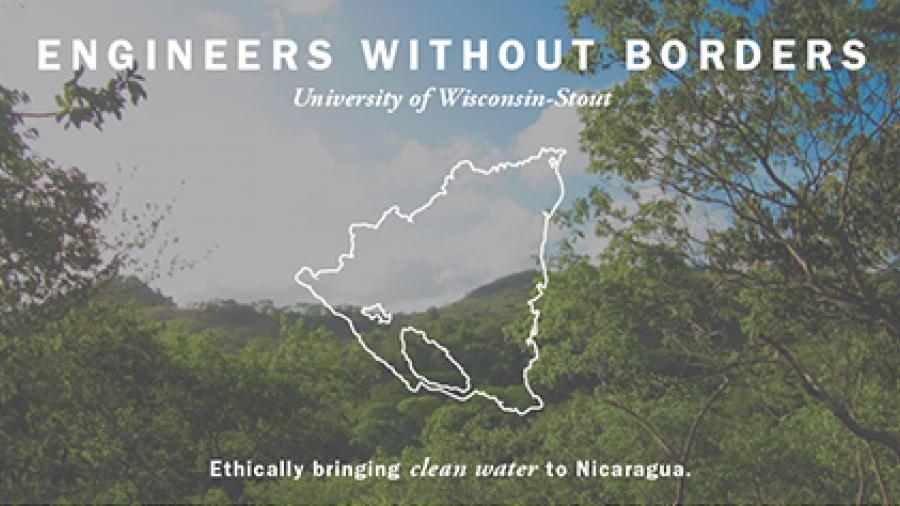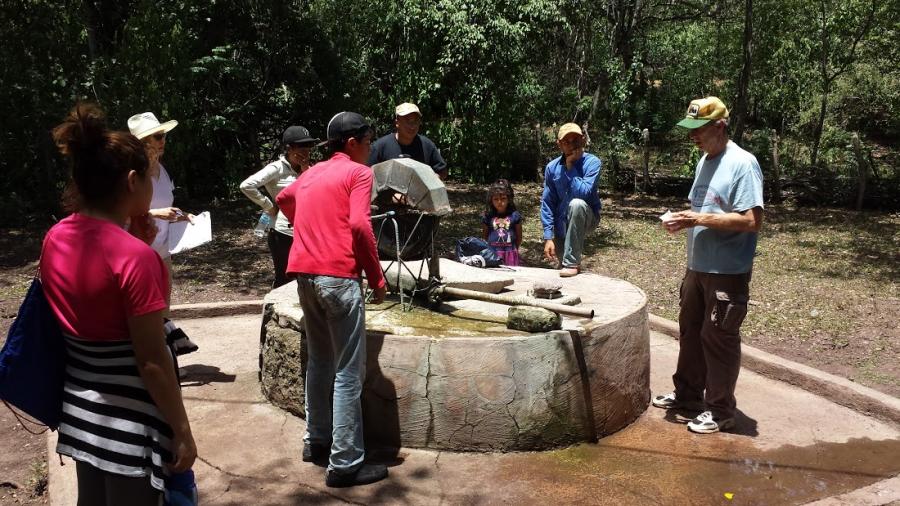
(The UW-Stout chapter of Engineers Without Borders can be found here)
This project explores how engineering and technology students experience service learning during their undergraduate programs. One example of service learning is Engineers Without Borders (EWB) USA, which seeks to find practical solutions to community concerns, such as clean water or sustainable sewage systems. At UW-Stout, a newly created EWB chapter is working in Nicaragua to develop clean water systems, while understanding the needs and realities of life for both the citizens of the community and the volunteers. The project will unfold over four years and includes both engineering and social science students in the work. This project investigates the success of such community-based service learning projects. Many universities and colleges offer such experiences to their students and believe they are contributing a valuable service to developing communities. However, service learning projects are often compromised because students graduate, and/or faculty leaders move to other institutions, and community ties are lost. The project seeks to find best practices for university/college-based service learning for all stakeholders in these enterprises. This project is a collaboration between the professional society, Engineers Without Borders USA and University of Wisconsin-Stout researchers, teachers, and students. Student attitudes, beliefs, and goals about community involvement are explored in a cross-institutional way: In addition to studying the UW-Stout EWB chapter, the project looks at data collected by Engineers Without Borders USA, and examines trends and practices throughout chapter projects.

A fundamental goal of this project is to understand what works and why in university-based service learning projects, so that more institutions can implement best practices and be successful in their community-based efforts. The successful implementation of the guidelines developed through this work will enable a more meaningful learning experience for students who partake in affected service learning offerings at UW-Stout and other university/colleges. Additionally, the communities who are the recipients of such efforts will be better served as the needs of the community are addressed through the application of ethics to the STEM practice. The results of this study are applicable to other projects that aim to connect students with communities to meet community needs. A wider understanding of how to balance the needs of students and communities could be broadly applied to service learning projects outside of the STEM fields. More specifically, community development, economic development, and applied anthropology projects might benefit from this research. Finally, third party stake holders such as employers of STEM students are able to employ students who are better prepared to operate in the global workplace due to their participation in well-formed service learning opportunities. In summary, this work contributes to the development of an economically competitive STEM workforce by providing a guiding structure for effective and ethical service learning initiatives for STEM education. The overall project outcomes are disseminated publicly through a project website, traditional and lay publications and presentations, and the development and delivery of workshops. Further, project outcomes that specifically target the operation of EWB-USA projects are incorporated into the guidelines that are followed by EWB-USA’s membership, more than 14,000 individuals.




